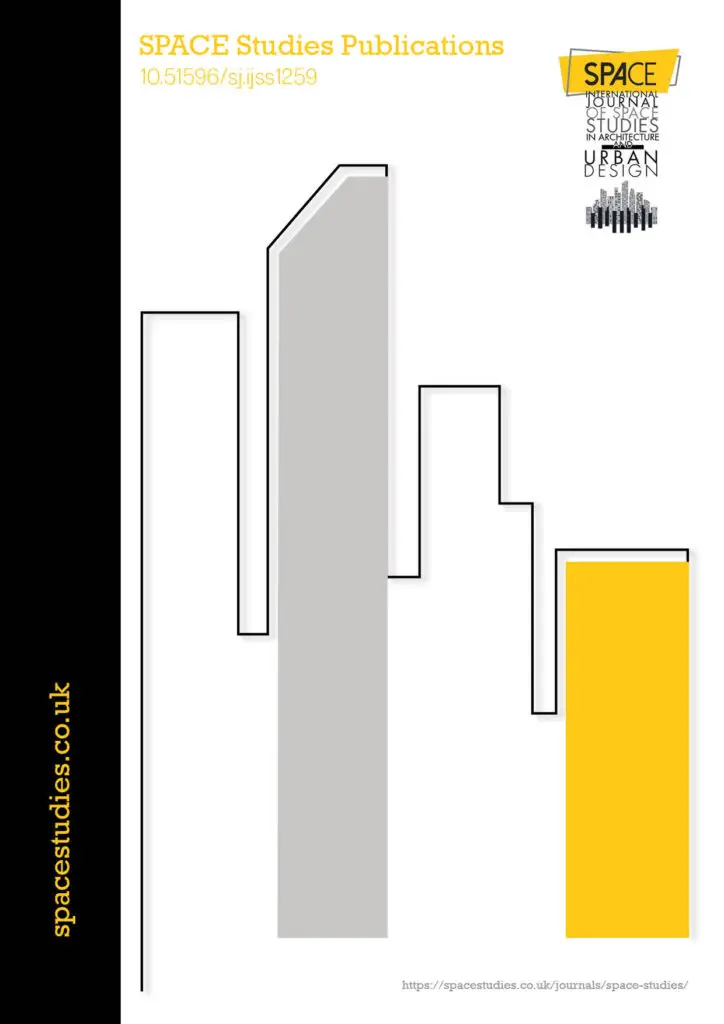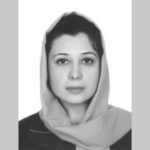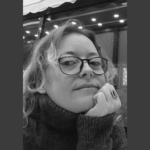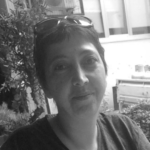
Christo Vosloo
Graduate School of Architecture University of Johannesburg,Luvuko Mqaqa
Graduate School of Architecture University of JohannesburgThe development and planning implemented during various historical periods before and during apartheid have resulted in many former ‘Bantustan’ and South African cities being fractured, incoherent, and thus characterised by an absence of a fair economy and effective spatial and infrastructure development. This situation thwarts economic growth and poverty relief. To highlight the issues and context of “Bantustan” cities, one of them, Mthatha, will be used as a case study. Using literature review methodology, four distinct historical periods will be examined to understand the city’s current situation. The periods are the Pre-colonial period, the Colonial period (1816-1910), the Apartheid and the post-apartheid period (1994 to present). The planning patterns resulted in many problems that thwarted efforts at economic uplift within these cities. It will be shown that a strategy is required that will reverse the planning legacies of colonialism and apartheid by encouraging local aspirations, enabling integration, and stimulating urban opportunity and, thereby, economic enablement.
£35.00 per Month.
Student priced discounts on conference registrations, SPACE shop and e-journals. Access to members only areas on the website. Proof of student eligibility required.
Access to Journal subscription.
This paper has been presented at the Conference “AGORA CAUMME 2020 – Mediterranean: Between Expansion and Regeneration” and selected by the Conference Scientific Committee to be published in the SPACE International Journal of Space Studies in Architecture and Urban Design. Peer review under the responsibility of the scientific committee of AGORA CAUMME 2020.
Afesis-Corplan. (2011). A sustainable development plan for the urban functional areas of the King Sabata Dalindyebo Municipality, Mthatha and Mqanduli. Retrieved 2011, from http://www.afesis.org.za/local-economic-development/local-economic-development-reports/52-sustainable-development-plan-for-the-ksd-functional -urban-areas.html
Behrens, R & Watson, V. (1997). Making urban places: Principles and guidelines for layout planning. Cape Town: UCT Press. ISBN: 978 0 7992 1650 9
Brockett, L. (1996). The history of planning South African new towns: political influences and social principles adopted. New Contree Journal 43: 109-127
Brockett, L. (1998). The imperial imprint: British colonial towns. New Contree Journal 40: 160-179 ISSN 0379-9867
Dewar, D (1992). South African cities: a framework for intervention. Architecture SA 5(6): 16-18.
Dewar, D & Uytenbogaardt, R. (1995). Creating vibrant urban places to live: a primer. Cape Town: Newco.
Donaldson, R & Krige, S. (2000). Dynamics and inertia of the post-apartheid city. [O]. Available: https://www.impulscentrum.be/south_africa/mod3_city/rechts.asp Accessed 22 September 2018.
Google Earth. [S.a]. Mthatha Map. Retrieved 2020 from, https://earth.app.goo.gl/?apn=com.google.earth&isi=293622097&ius=googleearth&link=https%3a%2f%2fearth.google.com%2fweb%2f%40-31.57962385,28.78309927,664.52523684a,12223.06265946d,35y,360h,0t,0r%2fdata%3dCgAoBA
Hammond-Tooke, WD. (1956). The tribes of Umtata district. Pretoria: Government Printers.
Harrison, P, Todes, A & Watson, V. (2008). Planning and transformation, learning from the post-apartheid experience. London: Routledge. DOI: https://doi.org/10.1111/j.1468-2427.2009.00850_9.x
Hindson, D, Mabin, A & Watson, V. (1992). Restructuring the built environment: Phase 1 report to Working Group 5, National Housing Forum, in
Restructuring the built environment. Booklet 4, edited by K Brugge and N Maleka. Johannesburg: National Housing Forum.
Johnson, WR. (1994). Dismantling Apartheid: A South African town in transition. London: Cornell University Press. ISBN13: 9780801499920
Konya, A. (1980). Design primer for hot climates. London: The Architectural Press. ISBN9781483141084-003
Lemon, A (ed). (1991). Homes apart: South Africa’s segregated cities. Cape Town: David Philip. ISBN 0253333210
Lombaard, L. (2010). Mthatha case study, in DBSA’s Sustainable Communities Programme. Johannesburg: Development Bank of Southern Africa.
Mzamo, B. (2018). Assessing the relationship between Urban Blight and City Attractiveness: The Case of Mthatha CBD. MTRP dissertation, University of KwaZulu Natal, Durban.
National Housing Forum. (1996). Booklet 4: Restructuring the built environment, edited by K Brugge and N Maleka. Johannesburg: The National Housing Forum.
The Republic of Transkei.(1976). Mthtatha: The Republic of Transkei Olowu, D. (2018). African urbanization and democratization: Public policy, planning and public administration dilemmas, in The Routledge companion to planning in the global South, edited by G Bhan, S Srinivas and V Watson. London: Routledge:59-69. ISBN 9781138094130
Saunders, C & Derricourt, R. (1974). Beyond the Cape frontier: studies in the Transkei and Ciskei history. London: Longman Group Ltd.
Scott, JC. (1998). Seeing like a state: How certain schemes to improve the human condition have failed. New York: Cornell University Press. ISBN: 9780300078152
Siyongwana, PQ. (1990). Residential transformation in Umtata since 1976. Master’s dissertation, University of Port Elizabeth, Port Elizabeth.
Steyn, GS. (2014). 1000 years of urbanism in southern Africa: an integrated overview. Paper presented at the XXV International Union of Architects (UIA) World Congress, Durban, 2014, 4-6 August 2014.
Todes, A. (2006). Urban spatial policy in Democracy and Delivery, in Urban policy in South Africa, edited by R Tomlinson and J du Toit. Cape Town: HSRC Press. ISBN 0796921563
No potential conflict of interest was reported by the author(s).
Christo Vosloo
Luvuko Mqaqa
Sign in to continue
Not a member yet? Sign up now

Administrative Assistant
Deniz Bol is the Administrative Assistant at SPACE Studies, where she supports the day-to-day operations and contributes to the smooth functioning of the organization. Alongside her administrative role, Deniz is an artist with a passion for creative expression. She is currently pursuing her studies at the University of the Arts London (UAL), where she continues to develop her artistic practice. Her organizational skills, paired with her artistic background, make her a valuable asset to the SPACE Studies team, helping bridge the worlds of administration and creativity.
E-mail: denizbol@spacestudies.co.uk

Digital Marketing Consultant
Murat Oktay is the Digital Marketing Consultant at SPACE Studies, where he provides strategic guidance to enhance our digital presence and community engagement. With a keen eye for digital marketing trends and best practices, Murat plays a key role in refining our content strategy, expanding our online reach, and connecting with a wider audience. His expertise in digital tools and innovative marketing techniques aligns with SPACE Studies’ mission as a social enterprise, ensuring that our campaigns are impactful and resonate with our commitment to social responsibility in architecture and design. Outside his work with SPACE Studies, Murat stays at the forefront of digital marketing advancements, continually exploring new tools and sharing his insights with peers.
E-mail: muratoktay@spacestudies.co.uk

Marketing Manager
Santa Noella Matabaro is the Marketing Manager of SPACE Studies, bringing her expertise in strategic planning, community engagement, and relationship-building to the organization’s mission as a social enterprise. With a background in Politics & Law from the University of Kent, Santa combines analytical insights with a creative approach to advancing SPACE Studies’ vision of fostering interdisciplinary dialogue in architecture, design, and urban planning. In her role, she develops targeted campaigns and strategic partnerships, building brand presence and fostering meaningful connections with the community. Santa’s collaborative and people-centered approach enhances SPACE Studies’ impact, aligning with its commitment to social responsibility and innovation in the built environment.

Academic Content Coordinator
Betul Uckan is an architect and dedicated academic with a background in both architectural practice and research. She holds a Master of Science in Architectural Design and a Bachelor’s degree in Architecture from Istanbul Technical University, where she cultivated her interests in architectural theory and design. Betul has gained experience as a research assistant in various universities, contributing to design studios and foundational courses. She has also worked in the field as an architect with projects focused on design, modeling, and construction, and has been involved in notable projects, including Maltepe Piazza and Emaar Square in Istanbul. With her expertise spanning both digital and material architecture, Betul brings a dynamic, interdisciplinary approach to her role as the Academic Programme Coordinator.
E-mail: betuluckan@spacestudies.co.uk

Senior Researcher & Managing Editor
Arghavan Pournaderi is a senior researcher in the field of architectural conservation and restoration, with an academic foundation in architecture and specialized expertise in historic sites and buildings. Completing her PhD at the Art University of Isfahan, Iran, in 2019, her research has contributed to the understanding of Iran’s architectural heritage, with a focus on Isfahan’s urban and architectural evolution during the Safavid period. In addition to her extensive research, Dr. Pournaderi has held academic positions at various institutions in Isfahan, teaching at both undergraduate and graduate levels. Her work extends beyond academia as she contributes to SPACE Studies as Senior Researcher & Managing Editor, where she oversees scholarly initiatives that foster deeper interdisciplinary dialogue in architecture and heritage conservation.

Senior Researcher & Educational Consultant
Gregory Cowan is a Senior Researcher and Educational Consultant at SPACE Studies, where he leads initiatives that bridge academic research and practical application in architecture and urban design. He contributes his extensive experience to mentoring postgraduate students, designing educational workshops, and guiding community-focused projects. Gregory is also a freelance academic at the University of Wales Trinity St David and the University of Westminster, and founder of The Architects Coach. His expertise spans architectural workspace analysis, professional development, and positive intelligence coaching.
E-mail: gregorycowan@spacestudies.co.uk

Senior Researcher
Alison Hand is a Senior Researcher at SPACE Studies. She is a painter and writer with an MA in Painting from the Royal College of Art. Alison’s work focuses on creating absurd, unstable heterotopic spaces and dialogues with painting history. She is currently the Artist in Residence for King’s College London Philosophy Department on the Dreams and Wakeful Consciousness Research Project, exploring themes of time and simultaneity in new work. Alison has received numerous awards for her painting and is currently working with Bloomsbury Publishers on a major essay on Drawing in Contemporary Art. She is also the BA Fine Art Programme Leader at Art Academy London and co-director of Cement Arts. Her role at SPACE Studies involves leading research projects, mentoring junior researchers, and contributing to our artistic and academic initiatives.
E-mail: alisonhand@spacestudies.co.uk

Senior Researcher
Julian Wild is a Senior Researcher at SPACE Studies and the Sculpture Program Leader at The Art Academy London. With over 30 years of experience in creating and exhibiting sculptures, Julian has worked with high-profile clients such as Cate Blanchett and the University of Oxford. A fellow and former vice president (2015-2019) of the Royal Society of Sculptors, his work has been featured at venues like Modern Art Oxford and Chatsworth House. At SPACE Studies, Julian leads research projects, mentors junior team members, and conducts workshops that blend art and urban studies. In his free time, he enjoys attending academic conferences and crafting new sculptures.
E-mail: julianwild@spacestudies.co.uk

Director of Publications & Senior Researcher
Elif Suyuk Makakli (Associative Professor) earned her PhD in Architecture from the Vienna University of Technology, where she studied the impact of technology on architecture under Prof. William Alsop. With extensive experience in architectural practice in Istanbul and Vienna, she is now an Associate Professor at FMV Isik University, focusing on design education and technology. At SPACE Studies, Elif serves as both the Head of Publications and Senior Researcher, guiding scholarly content and contributing to research initiatives. She is dedicated to mentoring and fostering design innovation.
E-mail: elifsmakakli@spacestudies.co.uk

Director of Research
Sanaz Shobeiri is an architect, urban designer, and landscape urbanist, currently a postdoctoral researcher in the Department of Planning at Queen’s University Belfast. Her research focuses on age-gender inclusiveness and the interplay of architectural, historical, political, and sociocultural dimensions in urban spaces, exemplified by her project on city centres in Belfast and Tehran. Sanaz holds a PhD in Urban Planning from the University of Tehran and has a robust portfolio in sustainability and urban theory. As Head of Research at SPACE Studies, she leads innovative research initiatives, fostering collaboration and academic excellence. In her free time, Sanaz enjoys exploring urban landscapes and supporting community development.
E-mail: sanazshobeiri@spacestudies.co.uk

Creative Director
Selin Gulce Sozmen is the Creative Director at SPACE Studies, where she leads the artistic vision and design strategy for the organisation. With a background in graphic design and visual arts, Selin has been instrumental in creating visually captivating books, journals, and event posters. Her role extends to developing and coordinating workshops and creative projects, ensuring that all visual materials meet the highest standards of quality and innovation. Selin’s dedication to creativity and excellence drives the visual and creative direction of SPACE Studies, making her an essential part of the team.
E-mail: selinsozmen@spacestudies.co.uk

Founder & Executive Director
Pinar Engincan is the Founder and Executive Director of SPACE Studies, an innovative social enterprise focused on fostering interdisciplinary dialogue and education in architecture and urban design. With extensive experience as a lecturer and researcher, Pınar holds a PhD in Architecture and has led numerous academic initiatives. Her career includes curriculum development, international collaborations, and research on housing and urban policies. Passionate about bridging academia and community, she champions accessible education and consultancy services, empowering individuals to shape the built environment.
E-mail: pengincan@spacestudies.co.uk